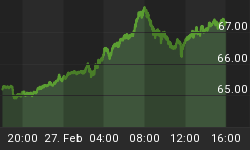Here are some facts that might make many fund investors question why they have chosen to invest in funds at all.
According to John Bogle, former CEO of Vanguard Funds, one of the most trusted authorities on investing in mutual funds and a strong advocate for ordinary investors, such investors typically get poor returns on their investments. How poor?
Between 1984 and 2002, the average stock fund investor made just 2.7% per year on their fund investments! Hard to believe isn't it? Yet this is for a period during which the S&P Stock 500 Index returned 12.2%, a -9.5% shortfall!
Expressed somewhat differently, had the equity investor invested $1000 buy and hold in the average equity fund beginning in 1984, their investment would have risen in value by $4420 by the close of 2002, for a 9.3% return. But had he invested the $1000 in the S&P 500 Stock Index instead beginning in 1984, his profit would have been $7910.
But, folks, here's the biggest part of the problem: Since most fund investors tend to buy and sell as a function of mass psychology, which usually turns out to be wrong, the average equity fund investor does far worse over the years than the long-term results had he merely bought and held his funds. So, if we track the performance of the typical investor's $1000 made at the start of 1984, his profit would be a mere $660, or a shocking one-twelfth of that of the $7910 shown above for the S&P Index.
How does Bogle account for this tremendous shortfall by the average investor? He attributes the first 3% of the annualized loss to the management fees, costs of the higher than 100% average turnover of stock portfolios, and other expenses incurred by the average fund. As a result of such hefty costs, the typical fund earns, as shown above, nearly 3% less than the Index.
And what about the bigger 6.6% annual difference between the 9.3% return of the average fund and the 2.7% earned by the average investor in those funds? Bogle attributes it to too many fund choices, the great majority of which are too undiversified to meet the typical investor's needs. Such, along with the emotions of "greed and fear", create an atmosphere whereby people are often tempted to make the wrong choices at the wrong times; that is, they are too avid to buy when they should be being more cautious, and too prone to sell out when things have been going poorly for quite a long time rather than selling just a small portion of their holdings, as I have advocated in my writings. (Incidentally, several of the very kind of investment problems reported by Bogle have been dealt with in previous articles on my own not-for-profit website.)
So what can you do to get better results than those achieved by the average investor?
Bogle is known for his support of index funds to reduce fund costs. We agree that this is certainly part of the solution. We also feel that you should choose fund companies and products whose management fees are among the lowest.
But, unfortunately, indexing to the S&P 500 would not have helped you a great deal during the last 5 years; the total return for this itself somewhat undiversified index of U.S. large cap stocks has been a miserable -1.6%. And, unfortunately, human nature, and changing financial and personal circumstances make it all the more difficult to hold any investment year after year for a decade or two, as would have been required to emulate the results above.
Even if you are confident in your own research or rely on data provided by a trusted resource, I still recommend that you consider how the above data might be affecting how well you are really doing in your investments, year after year.
For more thoughts on how to avoid losing the above 6.6% annual return, the largest part of why the average mutual fund investor underperforms, you should invest a little time checking out some of the relevant articles at my site at http://funds-newsletter.com.















